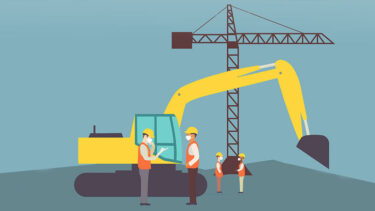Coronavirus can no longer be an excuse to close sites


So, when the coronavirus crisis began to emerge, it was soon clear that we were facing a challenge that nobody had experienced before but it was also another problem that we needed to solve.
As the crisis began to unfold, we had around 60 live sites across the UK with a site value of around £800m even for a business as robust as Wates, this was a business-critical moment.
We were already taking measures every step of the way as the crisis developed and then when the lockdown was announced towards the end of March, we decided to hit the pause button and took two days to assess all aspects of our operating procedures to ensure they were safe and fit for purpose.
Apart from two important heritage projects in London, every one of our sites re-opened on the third day of lockdown in line with Government guidelines. It was then that the next phase of work began in terms of establishing a model that allowed projects to continue to move forward while protecting the health and wellbeing of everybody on site.
How many people could we safely get on site and how would they get there? What protection would they need? What was best practice in terms of welfare stations and site navigation?
The other major challenge we faced was that large swathes of our supply chain had been furloughed and key materials had been prioritised for organisations like the NHS, while the statutory bodies crucial to the smooth running of the industry had moved to an emergency footing.
However, at the same time we were also approached and then delivered 170+ intensive care beds for the Royal London Hospital in 30 days, working around the clock. Not only did this provide us with the experience to show that safe construction could take place but also the belief that it should take place.
However, at the same time we were also approached and then delivered 170+ intensive care beds for the Royal London Hospital in 30 days, working around the clock. Not only did this provide us with the experience to show that safe construction could take place but also the belief that it should take place.
Over the month that followed we enabled a range of operating processes on our sites – from staggering the workforce and introducing twilight shifts to introducing designated routes to maximise social distancing.
We were also able to work with our neighbours and utlise car parks that were not being used because of the lockdown to ensure that we have sufficient provision for colleagues to be able to get to and from work.
The energy of the Wates team and the support of our clients, sub-contractors and supply chain during this period has been exemplary – both emotionally and practically. In return they have had our commitment to do everything possible to keep projects on track without compromising their health and well-being.
The way in which we have gone about overcoming the challenges presented by the current crisis has been truly market leading and our aim now is to capture all the positive aspects of the last two months to really transform the way we work.
As well as the practical considerations such as accelerating the use of technology and a reduction in unnecessary travel and meetings, this period has also helped us form deeper relationships with our clients and partners, as well as reinforcing our reputation as a can-do contractor in the market. This is something we look forward to building upon in the weeks and months ahead.